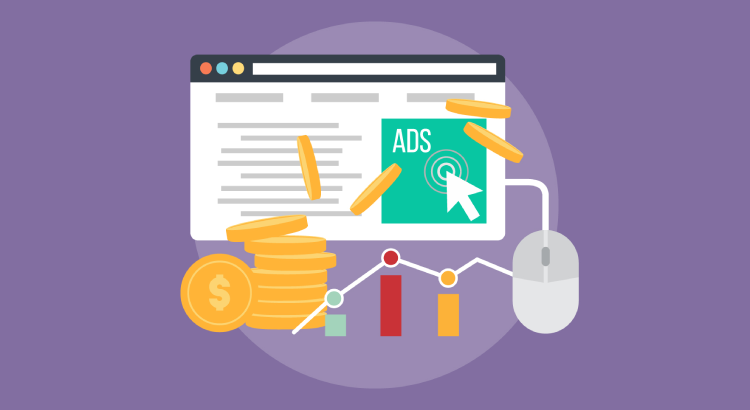PPC for small business is a powerful way to reach potential customers quickly. Top PPC agencies often help businesses create targeted ads that appear on search engines and other platforms. This strategy can generate immediate traffic and increase brand visibility. It also allows for precise audience targeting, helping businesses maximize their ad spend.
Top 10 Benefits of Small Business PPC Advertising
Here are the top 10 benefits of this strategy:
1. Quick Results
Unlike organic strategies that take months to show results, paid ads can create immediate traffic and visibility. Campaigns can be set up quickly, and performance data is available almost instantly, helping you adapt promptly.
2. Easy to Measure and Track
Platforms like Google Ads and Bing Ads provide detailed analytics, allowing you to monitor metrics like clicks, impressions, and conversions. This transparency helps evaluate your return on investment (ROI) and optimize your efforts.
3. Access to a Large Audience
Online advertising gives you access to a vast user base actively searching for products or services. By adjusting your campaign settings, you can narrow your reach based on location, demographics, or behavior.
4. Fast Campaign Setup
Setting up a campaign is straightforward. From creating an account to selecting keywords, crafting ad copy, and setting a budget, the entire process can be completed in just a few hours. Once approved, your ads start running immediately.
5. Cost-Effective Approach
The pay-per-click model means you only spend when someone clicks on your ad. This method allows for effective budget management, ensuring you don’t overspend. Daily or monthly limits can also be set to control costs.
6. Advanced Targeting Options
You can target audiences based on their demographics, interests, and online behavior, making it more likely to reach those genuinely interested in your offerings. This precision helps minimize wasted ad spend.
7. Flexibility and Control
Advertisers can adjust their campaigns in real time. Whether it’s changing keywords, altering ad copy, or increasing bids, you have the flexibility to make updates that can immediately improve performance.
8. Effective Remarketing Strategies
Retargeting helps you re-engage users who have previously visited your site but didn’t convert. This reminder can draw them back and encourage them to take action, increasing the chances of conversions.
9. Complements Other Marketing Strategies
Paid ads can work alongside SEO, social media, and email marketing to maximize visibility. Integrating these strategies can enhance your brand’s reach and create a well-rounded marketing approach.
10. Real-Time Performance Analysis
The ability to analyze your campaign performance in real time allows you to make data-driven decisions. If certain keywords or ads aren’t performing, quick adjustments can be made to improve effectiveness.
PPC Tips for Small Businesses
With shifting consumer behavior and frequent updates to search algorithms, running effective paid campaigns requires a strategic approach. Here are practical tips to help you get the most out of your efforts:
1. Conduct Thorough Keyword Research
Choosing the right keywords is essential for driving traffic without overspending. Aim for terms that balance volume and competition. Avoid highly competitive keywords that can drive up costs while still targeting those likely to attract potential customers.
2. Craft Compelling Ad Copy
Your ads have only seconds to capture attention, so focus on what makes your business unique. Address user pain points directly, highlight your strengths, and include your unique selling point (USP) to encourage clicks and conversions.
3. Optimize Landing Pages
A well-designed landing page should deliver a clear, relevant message that aligns with your ad. Prioritize a smooth user experience with clear headlines, simple navigation, quick loading times, and effective calls to action (CTAs).
4. Use Location-Specific Keywords
Geographic keywords help you reach nearby customers more effectively, minimizing wasted ad spend and increasing relevance. They enhance your visibility in local searches, offering a competitive edge in your area.
5. Focus on Quality Score
Maintaining a high-quality score can lower costs and improve ad placement. Ensure your keywords, ad text, and landing pages are tightly aligned. Regularly analyze and adjust your strategy to maximize performance and revenue.
6. Utilize Negative Keywords
Filtering out irrelevant search terms prevents wasted clicks and helps you reach the right audience. Identifying negative keywords can enhance targeting accuracy, increase click-through rates, and maintain a healthier budget.
7. Include Clear Calls to Action (CTAs)
Effective CTAs prompt users to take the next step, whether it’s making a purchase, signing up, or exploring more. Use action-oriented language like “discover,” “get started,” or “learn more” to inspire engagement.
Wrapping Up
Implementing a well-planned paid advertising strategy can help drive traffic, increase visibility, and generate valuable leads. By focusing on thoughtful keyword research, precise targeting, and optimized landing pages, you can create campaigns that maximize your return on investment. Continuously monitor performance and make adjustments to stay ahead of market changes. With a strategic approach, your efforts can yield meaningful results, helping you achieve your business goals.


